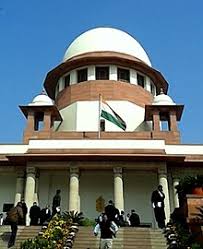This appeal arises out of the decision of the Division Bench of the High Court of Bombay under Section 37 of the Arbitration and Conciliation Act 1996 (Para 1)
Rejecting all claims were set aside and certain claims were allowed. This appeal by Konkan Railway Corporation Limited challenges the legality of the order passed by the Division Bench of the High Court while exercising jurisdiction under Section 37 of the Act. (Para 1)
The Arbitral Tribunal by its award dated 15.11.2014 considered the three disputes and rejected all the claims. (Para 4)
The contract in favour of the Respondent was entered into on 24.11.2004. At that time the Notification of the Government of Jammu and Kashmir dated 19.12.2003 exempted Entry Tax on earth-moving instruments. However, during the execution of the contract, on 25.01.2008, the Government of Jammu and Kashmir withdrew the exemption notification. Consequently, the Respondent raised claims for reimbursement of Rs. 1,32,29,771/- incurred on account of payment of Entry Tax. (Para 5)
In so far as Dispute IV is concerned, it relates to reimbursement of Toll Tax on machinery and materials. As per the extant policy in Jammu and Kashmir, the Toll Tax as applicable on the date of the submission of tender, that is 31.05.2004, was Rs. 400/- per MT. However, through four subsequent notifications issued under Jammu and Kashmir Levy of Toll Tax Act, 1998, the taxes were progressively increased to Rs. 650/- per MT. Consequently, the Respondent raised a claim of Rs. 5,23,279/-, incurred on account of increase in toll tax during the subsistence of the contract. (Para 6)
The Arbitral Tribunal was of the view that Entry Taxes on earth-moving equipment formed part of the cost of the works quoted in the Bill of Quantities. For this reason, the Arbitral Tribunal came to the conclusion that the increased liability on account of imposition of Entry Tax could not be reimbursed under Clause 5.1.2, as recoupment for the same could only be governed by the Price Variation clauses (clause 7.1.1 and 7.1.2 in Chapter 7). (Para 8)
The Tribunal reasoned that the contractor was aware of these conditions at the time when the prices were quoted, and therefore, the claim could not succeed under Price Variation clauses. (Para 8.2)
As regards the claim for Toll Tax which formed part of Dispute IV, the Tribunal adopted the same interpretation of the contractual clauses and rejected the claim. (Para 8.3)
It finally concluded that the approach adopted by the Arbitral Tribunal would amount to perversity, and therefore, found it necessary to set aside the Award, and allow claims covered under Disputes III and IV. (Para 10)
This judgment of the Division Bench of the Hight Court led to the present civil appeal before us. (Para 11)
In the present case, the Arbitral Tribunal interpreted the contractual clauses and rejected the Respondent’s claims pertaining to Disputes I, III and IV. The findings were affirmed by the Single Judge of the High Court in a challenge under Section 34 of the Act, who concluded that the interpretation of the Arbitral Tribunal was clearly a possible view, that was reasonable and fair-minded in approach. (Para 16)
In the present case, we have examined the appreciation of evidence by the Arbitral Tribunal as well as the Single Judge of the High Court. We are convinced that their appreciation of the facts and interpretation of the contract is reasonable, and comprises a possible view. Keeping in mind the mandate of Section 5 of the Act 1996, [Arbitration and Conciliation Act, 1996, section 5: (Para 22)
we are of the opinion that the Division Bench of the High Court committed an error in setting aside the concurrent findings of the Arbitral Tribunal and the Single Judge of the High Court. The Award of the Arbitral Tribunal and the decision of the Single Judge of the High Court under Section 34 of the Act cannot be termed as perverse or patently illegal as concluded by the Division Bench of the High Court. The decision of the Arbitral Tribunal is a plausible view, and the Single Judge refrained from interfering with it under Section 34 of the Act. We are of the opinion that the Division Bench should not have interfered with these orders. (Para 24)
SUPREME COURT OF INDIA
2023 STPL(Web) 184
[2023INSC742]
Konkan Railway Corporation Limited Vs. Chenab Bridge Project Undertaking
Civil Appeal No. 2903 of 2023 (Arising out of S.L.P. (C) No. 5640 of 2023)-Decided on 17-8-2023
https://stpllaw.in/wp-content/uploads/2023/08/2023-STPLWeb-184-SC.pdf







